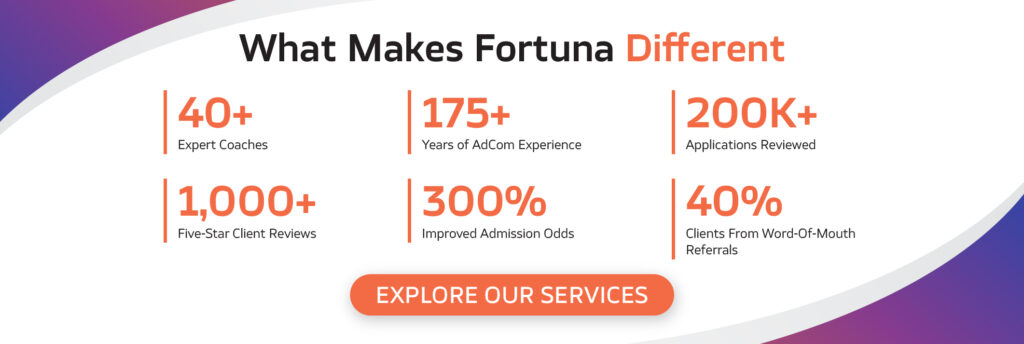Applying to a top MBA program is no small feat. You’ve probably been pouring hours into your essays, fine-tuning your resume, and carefully choosing your recommenders. But there’s one small yet significant box on the application that often gets overlooked: the FERPA waiver. What is it, why does it matter to the MBA admissions process, and should you sign it? Let’s break it down so you can approach this step with confidence.
What is FERPA?
FERPA stands for the Family Educational Rights and Privacy Act. It’s a US federal law protecting the privacy of student education records. Consider it a student’s right to keep their academic information confidential. This includes things like grades, transcripts, and disciplinary records. It’s important to understand this context before diving into the waiver itself and how it impacts FERPA rights.
Why the Waiver?
When you apply to grad school, you’ll likely be asked to waive your right to access recommendation letters. This is the FERPA waiver in action. By signing it, you’re essentially telling the admissions committee that you won’t try to read the recommendation letters written about you. This is crucial for the integrity of the MBA recommendation letters process which is a key component of MBA applications. Now, let’s get into why this waiver is so important from the admissions committee’s perspective and whether you should waive the right to view your letter of recommendation.
Admissions Committee Perspective: Why It Matters
Admissions committees place significant weight on recommendation letters. They offer an external perspective on your character, skills, and potential. But these letters are only truly valuable if they’re candid and honest. As former admissions directors at top business schools, we at Fortuna Admissions have seen firsthand how the FERPA Waiver impacts this process. Admissions committees interpret a signed waiver as a sign of confidence and trust. It suggests you’re secure in your abilities and willing to let others speak on your behalf without interference.
Conversely, refusing to waive your rights can raise concerns.
If you don’t waive your right, it might suggest you’re trying to control the narrative or that you’re worried about what your letter writers might say. This can create a negative impression, even if unintentional. In short, waiving FERPA rights is a signal to admissions committees that you understand the MBA admission process and are committed to a fair and unbiased evaluation. Signing the FERPA waiver shows that you are happy for your recommendation letters to remain confidential. This indicates your confidence in your graduate school application.

Practical Tips: Choosing the Right Recommenders
So that you can sign the FERPA waiver with confidence, it’s critical to choose the right recommenders and work with them effectively. Here are some key tips from the Fortuna Admissions team:
- Choose people who know you well. Select individuals who have worked with you closely and can provide concrete examples of your skills and accomplishments. A generic letter from a high-profile figure is much less valuable than a detailed letter from someone who truly understands your strengths.
- Choose people who can speak to relevant skills. Think about the skills and qualities that you want to showcase to the admissions committee. Choose recommenders who can speak to those specific attributes.
- Give your recommenders ample time and information. Provide them with your resume, some additional notes about your relevant accomplishments and a clear explanation of your goals and why you’re applying to these programs. With our clients at Fortuna Admissions, we work together to prepare a brief for the recommenders so that they have at their fingertips the background information they need to craft a standout letter.
- Have a conversation. Before formally asking someone to write a recommendation, have a conversation with them to share your MBA plans and gauge whether they are enthusiastic and ready to support you.
For more advice on this topic see our related article, How to Secure the Best MBA Letters of Recommendation.
What If You Don’t Waive FERPA?
While it’s your right not to waive your right under FERPA rights, doing so could impact your MBA application. Although it’s not an element that weighs heavily in the decision process, there’s always a risk that your admissions file reader might view a refusal to sign the waiver negatively. Here’s a more detailed look at the potential consequences:
- Reduced candor: Letter writers might feel constrained in their feedback, knowing you’ll see their letter. This can result in a less insightful and impactful recommendation.
- Question of confidence: Admissions committees might question your motives. They may wonder if you’re trying to hide something or if you lack confidence in your abilities.
- Competitive disadvantage: In a competitive applicant pool, you don’t want the admissions file reader raising an eyebrow at your choice not to waive FERPA. If you are a borderline candidate, this could be factored into how they view your suitability overall.
It’s important to weigh these potential consequences carefully. In almost all cases, waiving your FERPA rights is the recommended course of action.

What If I’m Worried About a Bad Recommendation?
We know that candidates are often a little nervous about what their recommenders might say about them. But if you’ve chosen your trusted recommenders carefully – selecting people who know you well, can speak to your strengths and want to see you succeed – you shouldn’t worry. Trust is an important part of the process—both in your recommenders and in the admissions journey itself. Remember, a thoughtful application strategy starts with choosing the right people to advocate for you.
To recap, here are the key takeaways to keep in mind:
- FERPA protects the privacy of your educational records.
- The FERPA waiver gives you the option to waive your right to access your recommendation letters.
- Waiving FERPA rights signals your faith in your recommenders and the admissions process.
- It’s generally advisable to sign the FERPA waiver.
- Choosing trusted recommenders is key to getting positive letters.
Let’s Get You In
Applying to business school is a big step, and the FERPA waiver is just one of many intricacies of the process about which we advise candidates. As former admissions directors at top business schools, we know that every detail matters if you’re aiming for a top MBA program.
Ready to take the next step in your MBA journey? Fortuna Admissions is a dream team of former business school professionals from top-tier institutions, and we excel at helping candidates like you secure a spot at your dream school. Contact us today for a free consultation and expert guidance.





